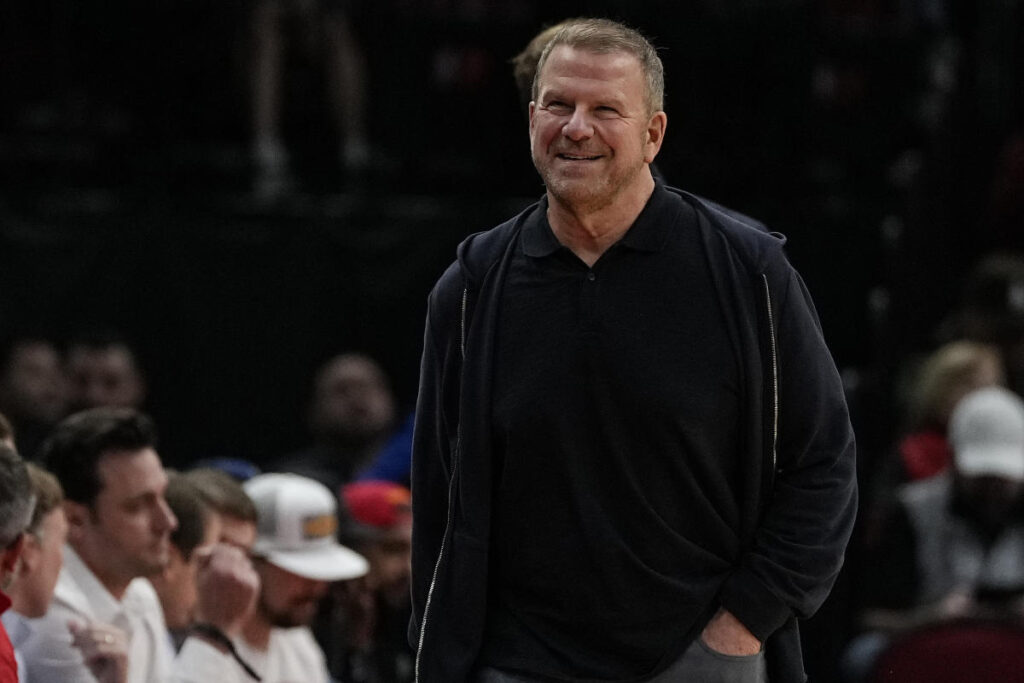On a recent Saturday, Donald Trump announced his appointment of Tilman Fertitta, the owner of the Houston Rockets, as the next ambassador to Italy. This decision comes amid a backdrop of rising political influence from Italian Prime Minister Giorgia Meloni, who has aligned herself with Trump and emerged as a significant figure in European politics. In his announcement made on Truth Social, Trump praised Fertitta as a successful businessman who has established one of the leading entertainment and real estate enterprises in the United States, employing around 50,000 Americans. Fertitta’s ownership of Landry’s, which encompasses over 600 locations, highlights his strong footing in the hospitality industry.
Despite lacking political office experience, Fertitta has been a consistent contributor to the Republican Party and has supported Trump’s initiatives, including donations to the Save America PAC. His involvement is further solidified by his role as the chair of the University of Houston Board of Regents, emphasizing his commitment to civic engagement. Fertitta’s appointment as ambassador to Italy aligns with a trend in which Trump has nominated several allies and donors for key European ambassadorial positions, often choosing individuals without traditional political backgrounds. This reflects Trump’s strategy of tapping into a network of loyal supporters from the business community to fill significant diplomatic roles.
Fertitta is among a handful of billionaire figures recently chosen for key ambassadorships, following individuals like Warren Stephens and Tom Barrack, who were appointed as ambassadors to the U.K. and Turkey, respectively. Additionally, Trump has selected family associate Charles Kushner and supporter Kimberly Guilfoyle for ambassadorships to France and Greece. This pattern underlines Trump’s approach of leveraging personal connections and loyalty in his appointments, creating a distinct diplomatic strategy that contrasts with predecessors’ tendencies to prioritize career diplomats or seasoned politicians.
The announcement of Fertitta’s ambassadorship comes alongside Trump’s intent to foster a close working relationship with the Italian government. With Meloni’s rise to prominence, both Trump and tech entrepreneur Elon Musk have expressed admiration for her, calling her a “fantastic leader” and a “precious genius.” This mutual respect hints at an emerging diplomatic rapport that could reshape U.S.-Italy relations under Trump’s potential administration, particularly if they are aligned in their political ideologies and governance strategies.
Interestingly, Fertitta’s background includes a foray into reality television, having appeared in CNBC’s “Billion Dollar Buyer.” This shared experience with Trump, a reality TV star turned political figure, underscores their cultural connections and may bolster Fertitta’s ability to relate to a broad audience, further benefiting his diplomatic role. The blend of entertainment and business proficiency may enhance Fertitta’s approach to diplomacy, potentially positioning him to bridge cultural and economic dynamics between the U.S. and Italy.
In summary, Fertitta’s appointment exemplifies Trump’s continued influence in national politics, as well as his strategy of appointing allies from business rather than career diplomats. The growing relationship with Meloni and the focus on building strong ties with key European nations could result in an assertive U.S. presence in the region. As Fertitta prepares to take on his new role, his experience in business and media will likely play a crucial part in how he navigates the challenges and opportunities that arise in representing the U.S. in Italy.

